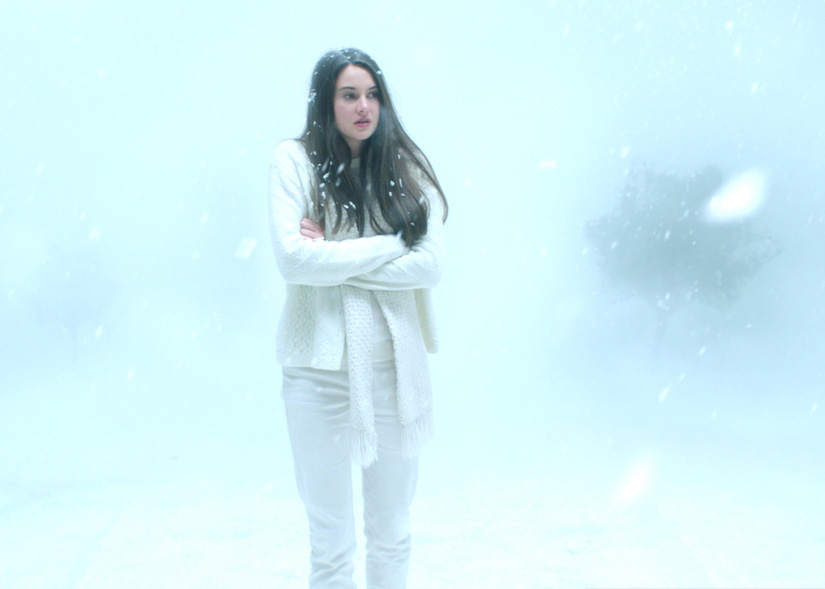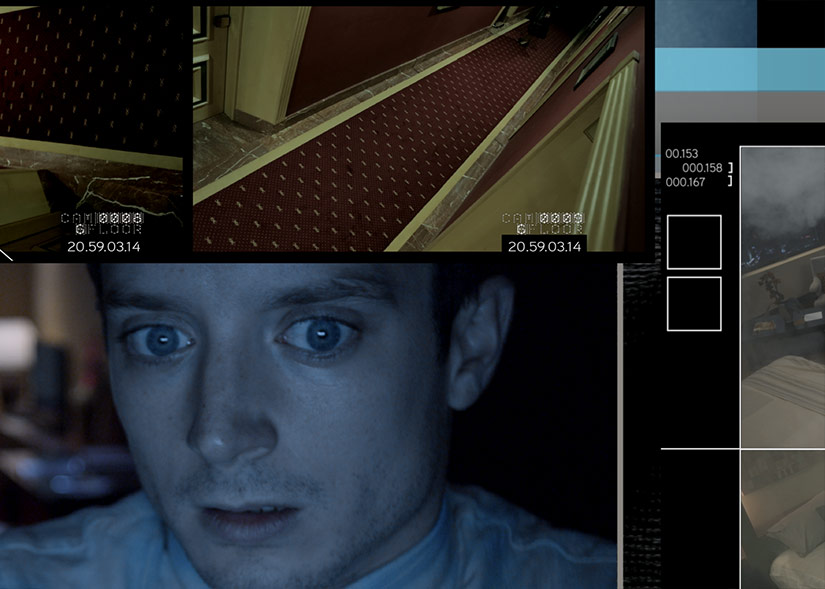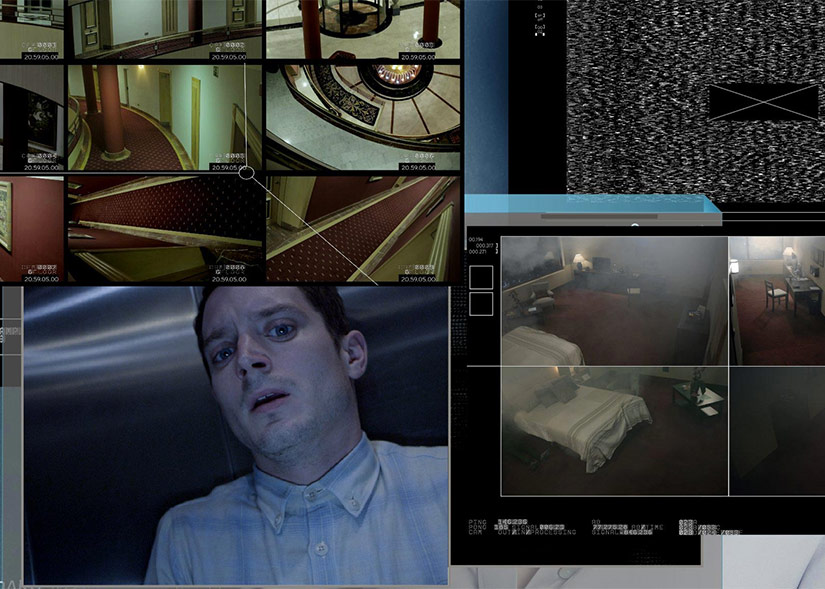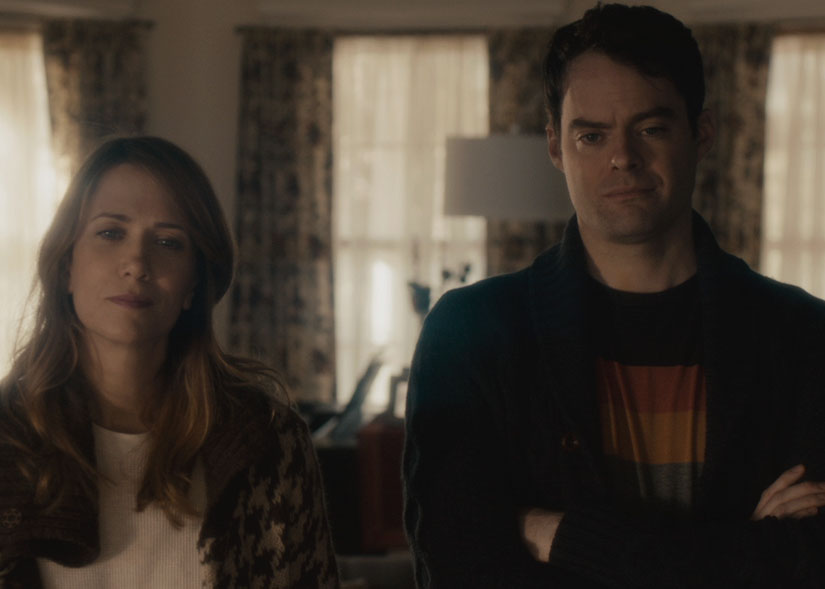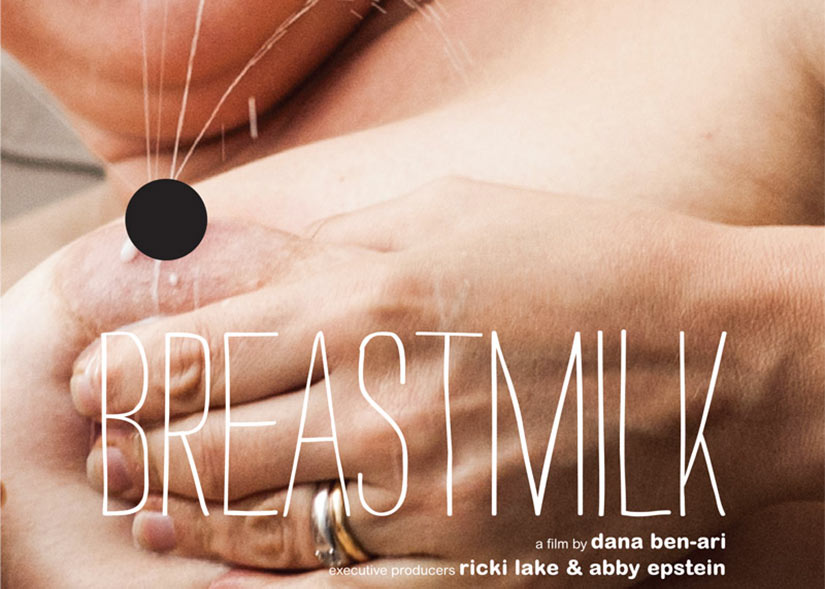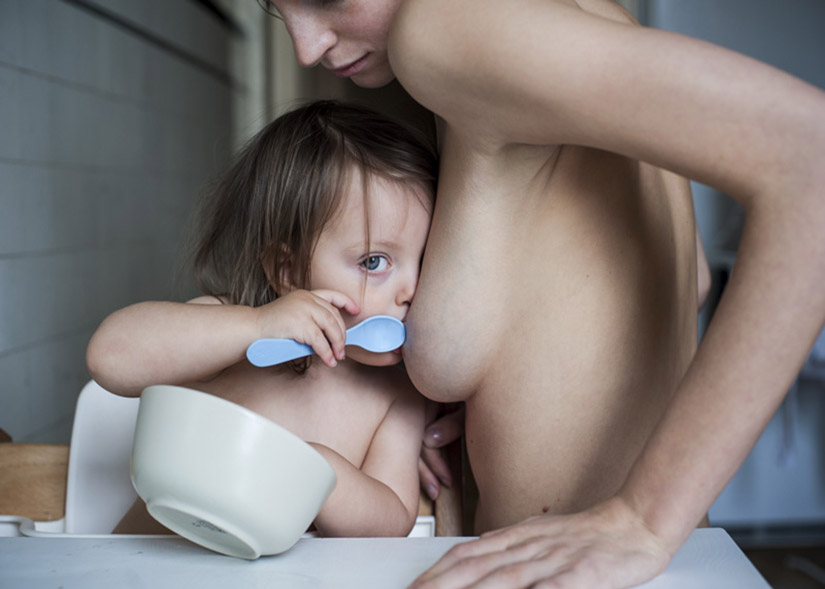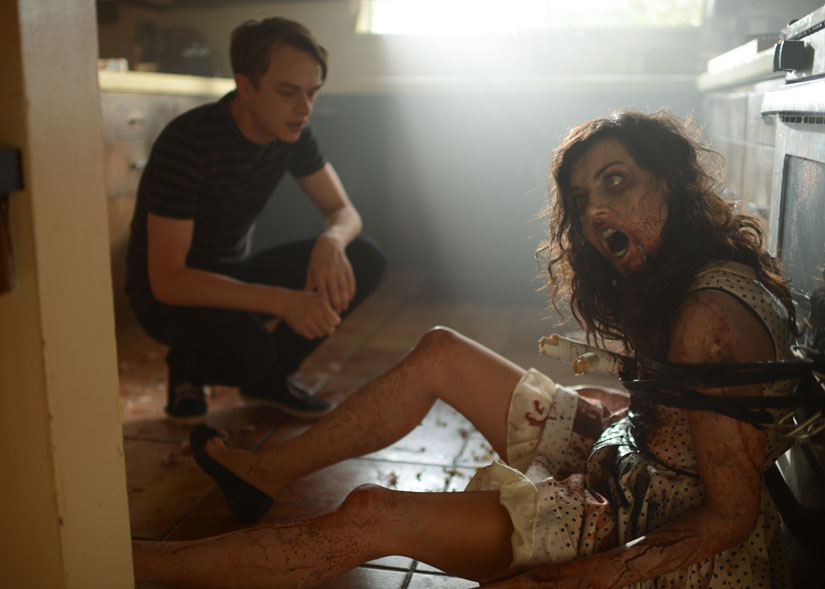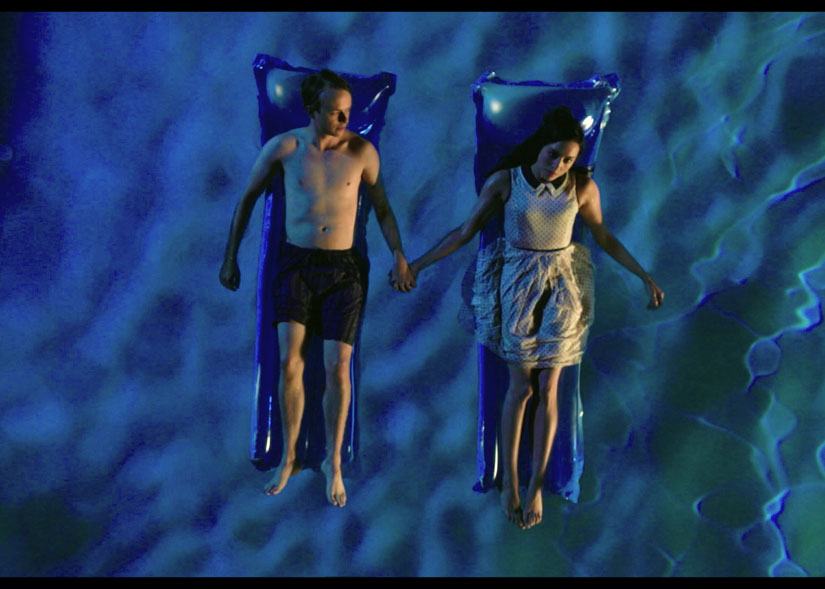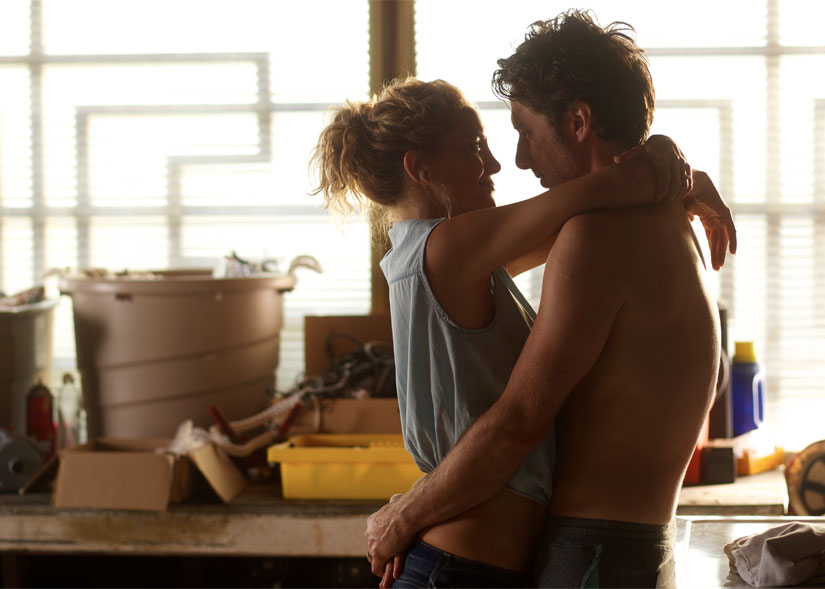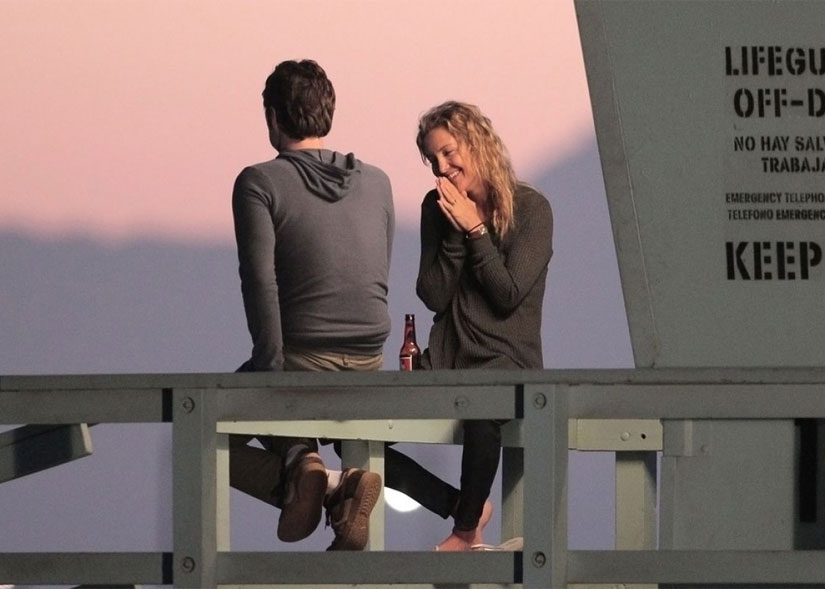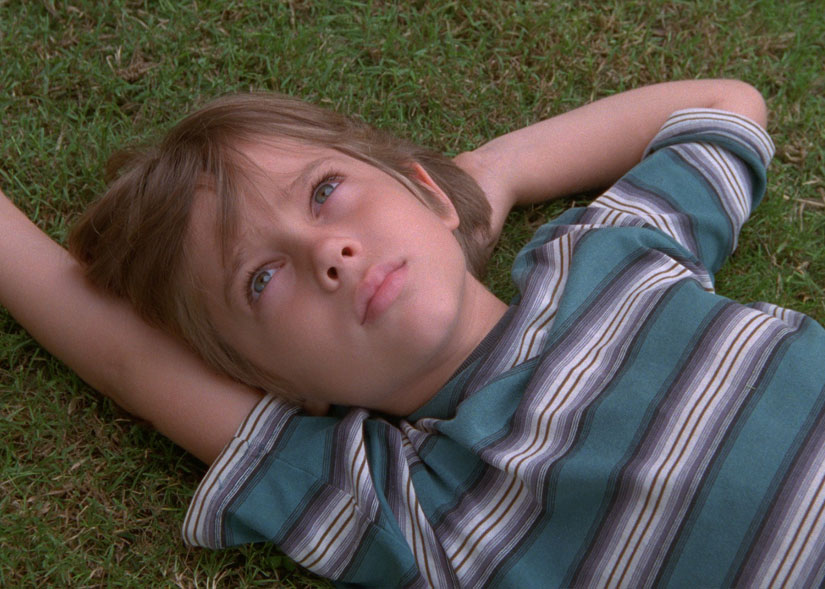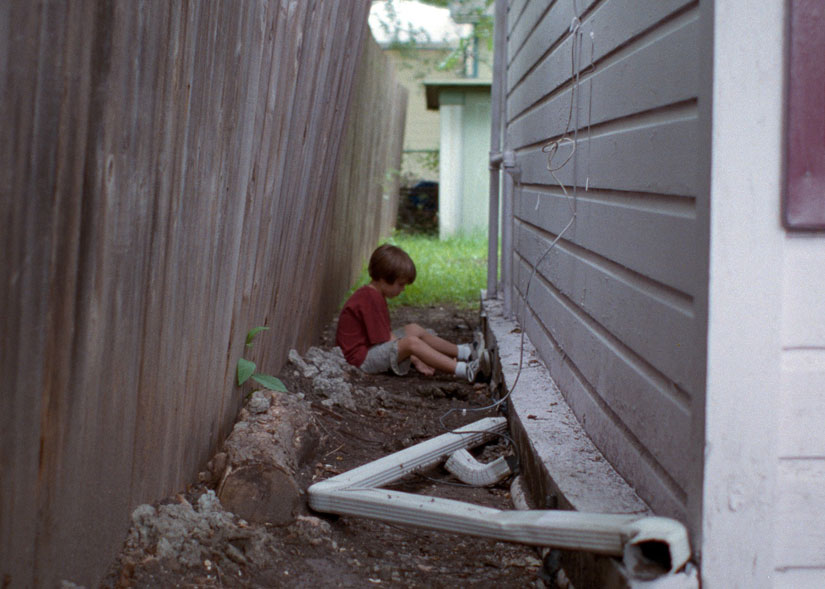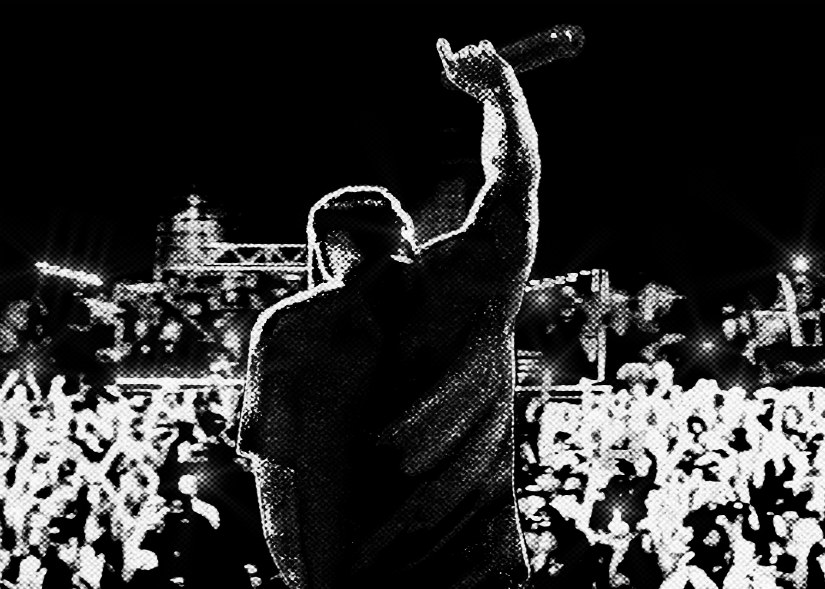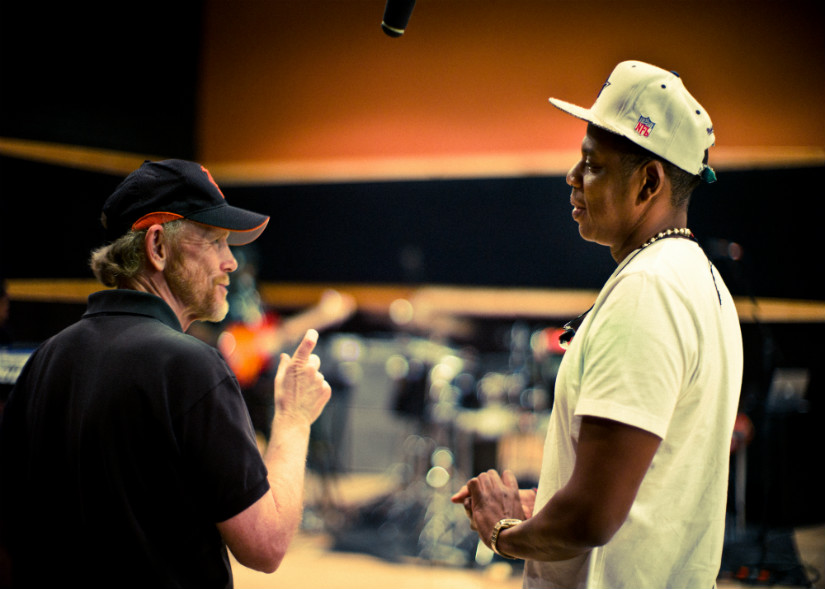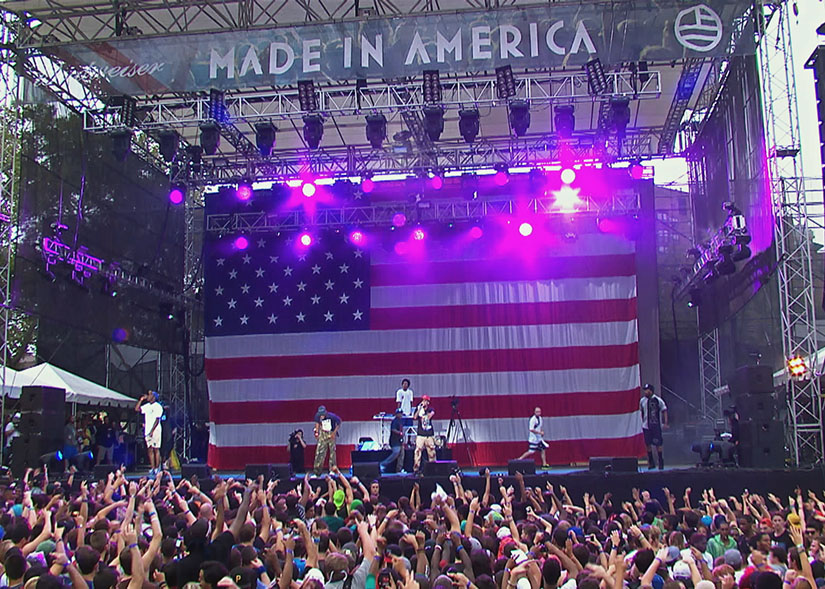[Review] White Bird in a Blizzard
This review was originally published as part of our Sundance Film Festival coverage. It is being re-posted to coincide with the film's theatrical release.
[youtube id="NMU1Hq3pQjM"]
White Bird in a Blizzard
Director: Gregg Araki
Rating: N/A
Release Date: January 20, 2014 (Sundance)
With a name like White Bird in a Blizzard, I couldn't help but find myself intrigued by the film. It didn't hurt that indie darling Shailene Woodley (The Spectacular Now) starred in the film, either. There's a simple connection drawn from the title to the film's premise, yet director Gregg Araki never lets White Bird in a Blizzard ever grow stale. Rather, what starts off tonally as a pseudo-romantic coming-of-age film quickly becomes a dark mystery thriller that had me pinned to the edge of my seat.
Set in the late 1980s, White Bird in a Blizzard is about Kat Connor's (Woodley) relationship with her alcoholic mother, Eve (Eva Green), and cowardly father, Brock (Christopher Meloni). As Kat matured into a young adult, her mother's intense jealousy grew as the distaste of her relationship and life began to take over her psyche in a scary midlife crisis. When Eve mysteriously vanishes, both Kat and Brock face an uncertain future. As the years pass, the disappearance is nothing more than a curiosity until Kat returns home during a holiday college break when new information arises that could complicate her relationships with everyone around her.
It's a bit hard to summarize White Bird in a Blizzard because of all of the plot twists and turns. As I implied in the introductory paragraph, White Bird in a Blizzard carries a certain connotation with it, yet the film is anything but straightforward. This is complemented by Woodley's performance, which is vastly different than anything she's done before. Araki is known for his use of sex and nudity (re: Mysterious Skin), and White Bird in a Blizzard is no difference. Woodley spends just as much time topless as she does clothed, and it came completely unexpected. However, it's all within tasteful reasons that actually serve the plot. Much like the aforementioned Mysterious Skin, there's a creepy, unassured tone underlying the entirety of the film that will keep you second-guessing everything and everyone, tempered by a foreboding notion that something bad is going to happen, and soon.
This sensation is perhaps most characterized by Green's stellar performance. You can't help but both sympathize with her and her unfortunate sense of marital and livelihood stagnation, yet you're frightened and creeped out by her episodic attacks on Kat. Meloni, too, demonstrates his range by playing the assuming Brock, running counter to the rest of his filmography. Hell, even Shiloh Fernandez (Evil Dead) puts in a solid performance as Kat's dimwitted ex-boyfriend.
White Bird in a Blizzard will keep you moving in your seat, whether it's due to arousal or discomfort... which is perhaps the best way to describe a Gregg Araki film. It may be hard to find an audience due to the sexual nature of the film, but if you get the chance to see it at another festival or an independent theater, I highly recommend checking it out.
[Review] Open Windows
Now, more than ever, cyber security has become a very legitimate threat in which everybody is a target. While the majority of headlines involving hacking have involved big corporations and celebrities, it's oftentimes the everyman whose credit card information gets stolen. Hell, a lot of cyber threats involve leaking of personal information, such as addresses, social security numbers, even personal photos (as we're all mostly aware of thanks to last month's "The Fappening"). In whichever form it may take, cyber security is a huge deal that not too many people take as seriously as they should.
Nacho Vigalondo's Open Windows explores this notion of cyber security with a film that's equal parts suspense, sci-fi, and action, held together by an exciting technical approach in which the entire film is shown through various computer windows and screens (more on that later). Does Open Windows continue Vigalondo's creative vision that was shown in his previous films Los Cronoscrimenes and Extraterrestre, or are the windows not as open as audiences may desire?
[youtube id="_Qz7DDvTA-I"]
Open Windows
Director: Nacho Vigalondo
Rating: N/R
Release Date: October 2nd, 2014 (VOD); November 7th, 2014 (theatrical release)
Nick Chambers (Elijah Wood) is the webmaster and owner of a fan site dedicated to actress Jill Goddard (Sasha Grey) that finds himself the winner of a contest to have a dinner and exclusive interview with Jill. However, she abruptly cancels on Nick. Downtrodden over the development, a man identifying himself as Chord (Neil Maskell), Jill's campaign manager, sends Nick an application that allows him to see through Jill's cell phone and computer screen as a means to make up for the cancellation. However, what begins as a voyeuristic breach of privacy soon becomes the only way Nick can protect Jill from a psychotic madman.
If this sounds pretty straight-forward, trust me when I say I've done my best to summarize the basic premise of the film without risking spoilers that reveal the true nature of the film's narrative, which has as many twists and turns that you'd expect from Vigalondo. As somebody who writes online for a living, I truly understand how important online nature is and how connected we must be to our sources of information at all times. Especially as an entertainment writer, sometimes a lot of our time is spent knowing every little detail and news bit about various celebrities. In a way, Open Windows serves as a critique of this culture of celebrity obsession. However, while the narrative will keep viewers along a very entertaining ride that, admittedly, results in a cheap ending, it plays a backseat to the technical achievements on display.
As noted by Vigalondo in my interview with him, Open Windows was shot with a multitude of cameras running at all times. The end result allowed various camera angles to be shot around the actors at all times through a contextual webcam, front-facing iPhone camera, computer screen, video camera, etc. The approach is a vast evolution of the typical first-person point of view seen in found footage films. However, whereas those films' characters are self-aware of the camera as both a camera and representative of a person, Open Windows' "cameras" aren't just cameras within the context of the film, but the aforementioned assortment of devices through which we can access information and, through that, visibility of the characters.
I might delve deeper into this analytical viewpoint of Open Windows at a later date, but for the sake of this review, I'll keep it brief and to the point: While the narrative discusses cyber security, voyeurism, terrorism, lack of privacy, etc., it's through the film's means of production (i.e. the channels in which both we, the audience, are relayed the information, as well as how the characters within the film are relayed the same information through the same channels) that formally make the connection/attachment to the film's themes. Sure, a big Hollywood blockbuster can have the same script, but if it were displayed through traditional ways, whether it's the third-person omnipresent perspective 95% of films follow or the first-person limited perspective of found-footage films, it wouldn't be the same. Literally every single second of Open Windows is seen and shown through these various "windows," and it's with this vision (both literally and figuratively) that I must tip my hat to Vigalondo to not only having the idea to craft this story, but to also have a format in which to properly tell it.
Open Windows is sometimes jarring, a little confusing, wholly entertaining, and will keep audiences asking questions throughout the duration of its runtime, whether they're about the film's plot or about how various scenes were shot. It's not a puzzle in the way Los Cronoscrimenes was, but it definitely has layers to it that audiences will want to piece together. I've spoken and praised a lot over Vigalondo's role in the film, but that's not to discredit both Wood and Grey; in fact, Grey's performance in the film is the best one I've seen in her career thanks to the perfect pairing between her personal persona and her character's.
Watch Open Windows and geek out over the film's technical achievements with your cinephile friends. This film is concrete proof that Vigalondo is here to stay, and I for one can't wait to see what he can churn out over the rest of his film career.
[Review] The Skeleton Twins
This review was originally published as part of our Sundance Film Festival 2014 coverage. It is being re-posted to coincide with the film's limited theatrical release.
The Skeleton Twins
Director: Craig Johnson
Rating: N/A
Release Date: January 18, 2014 (Sundance); September 12, 2014 (limited)
No matter how close we may be with another person, the likelihood of drifting apart is much higher than simply maintaining the relationship. It's a bitter pill to swallow, but various factors weigh in that can either extend or deter a friendship. What's worse is when family members inevitably drift apart. Craig Johnson's The Skeleton Twins tells the story of two twins who reunite after a 10 year-long estrangement - of course, their reunion brings with it both love and heartache as the duo rediscover and rekindle the bond between them.
Following a failed suicide attempt, Milo (Bill Hader) moves from LA to New York to live with his twin sister, Maggie (Kristen Wiig) and her husband, (Luke Wilson). While the reunion is tepid at best, the twins slowly begin to warm up to one another much in the same way their relationship had been as young children. However, as their love for one another grows stronger, so too do the dark secrets they each hide, ultimately coming to a head and changing their respective lives forever.
Given the fact that the leads are SNL alumni (with a supporting cast of Wilson and Modern Family's Ty Burrell), it's easy to assume that The Skeleton Twins will be indicative of the work both Hader and Wiig are most known for. However, while the film has its fair share of genuine laughs, it's a dark film with large skeletons in the closet (no pun intended) finding their way out. The laughs won't overshadow the melodrama, which should be kept in consideration when watching the film. The drama is compelling, twisted, and is honestly more memorable than the jokes.
In saying that, it was great to see Wiig and Hader not only embrace their comedy, but also showcase their range. The Skeleton Twins can get heavy, but it's never pandering or too imposing to the audience. Can it be melodramatic? At times, sure, but Wiig and Hader handle it deftly. The Skeleton Twins may not necessarily represent the actors' abandonment of comedy for drama, but it certainly shows they're more than capable of handling more trying roles.
[Review] Breastmilk
To be honest, I'm out of my element with this one. I'm at that age where all of my friends are starting their families, and being a single guy surrounded by married couples and kids has been a huge change of pace from my early 20s. Lately, I've been on the receiving end of parenting from who I consider to be a "Super Mom," getting a very detailed perspective on child rearing from a maternal point of view. In saying that, I felt like watching Breastmilk, a documentary on breast feeding, would be a more formal extension of those conversations. I didn't exactly get what I was looking for... then again, I don't really know what I was trying to get out of a documentary on breast feeding.
[youtube id="eNMFaYetTxA"]
Breastmilk
Director: Dana Ben-Ari
Rating: N/A
Release Date: August 5th, 2014 (Purchase Here)
Breastmilk follows a handful of women through their first year of motherhood, linked together by the topic of breast feeding. Based on my external conversations on the subject, I know that breast feeding is very important and nutritious for newborns. However, I don't really know why. I was hoping that Breastmilk would illuminate the pros and cons of breast feeding... but it doesn't do that. In fact, where most documentaries will have a stringent narrative (complete with a narrator guiding the documentary along), Breastmilk follows a loose outline over the course of the year, keying in on specific points relating to the trials and hardships of breast feeding.
Without the proper background information, I don't know why women choose breast feeding over formula. Breastmilk does hone in on the emotional and psychological connection a mother has with her child through breast feeding, but I was expecting a more scientific explanation for it. I really love loose narratives in documentaries, as it lets the subjects (and editors) set the tone for the films; however, I guess I just had too much of an expectation that, ultimately, can't be wholly held against director Dana Ben-Ari.
In saying that, I'm obviously not the demographic Breastmilk was targeting. I think the documentary would be a great supplementary tool for expectant mothers to see what breast feeding is like over the course of a baby's first year alongside the standard texts recommended by doctors. However, it doesn't inform or educate as much as I think it could have. As a single male in his late-20s, I guess what I expected were first-hand, entertaining lessons on breast feeding directly from first-time mothers. Instead, I got inundated with stories about latching, inabilities to produce excess breast milk, and more. While I loved learning about the other aspects to breast feeding, I still felt slighted not truly being explained the benefits of it in the first place.
[Review] Life After Beth
[This review originally appeared as part of our Sundance Film Festival 2014 coverage. It is being re-posted to coincide with the film's theatrical release.]
Life After Beth
Director: Jeff Baena
Rating: N/A
Release Date: January 19, 2014 (Sundance)
Saying goodbye to a loved one is never easy, especially if the circumstances are tragic. However, given a second chance at life, anybody would accept the situation, right? In Life After Beth, writer/director Jeff Baena uses a zombie uprising as the premise behind is romantic comedy about Zach (Kill Your Darling's Dane DeHaan) and Beth (The To Do List's Aubrey Plaza) as a young couple torn apart following the latter's unfortunate passing. Will a promise to make things better the second time be enough to overlook the elephant in the room concerning Beth's return?
After bonding with his ex-girlfriend's father, Murray (John C. Reilly), Zach slowly begins his journey to recovery. For reasons never explicitly explained, Beth seemingly returns from the dead. With a new lease on love, Zach does everything in his power to ensure the relationship goes smoothly. However, as more time after Beth's return passes, she begins to act out, coinciding with the emergence of more dead people.
Simply put, Life After Beth is an allegory for moving on after the end of a relationship. Again, while it's never explained why Beth's (and the rest of the dearly departed's) return is feasible, I think there's an underlying connection to his "connection" to her. In a minor subplot (which, in retrospect, is perhaps the most important of plot turns), an old friend of Zach's, Erica (Anna Kendrick), appears. As they catch up, Beth's condition worsens as she flips between being Zach dependent (relationship-wise) and Zach dependent ("zombie eat brains"-wise). It's interesting subtext, but unfortunately, not enough to hold the rest of the film up.
DeHaan is one of the most talented up and coming actors of this generation, yet his talents are never fully realized in Life After Beth. The film could have been the perfect breeding ground to illustrate his comedy (as he's mostly known for his dramatic roles), but it never comes to fruition. In contrast, Plaza fits well into the film's mold, easily playing both girlfriend and zombie with her patented deadpan, slacker-esque tone. The entirety of the film, however, is low on laughs. Oftentimes, it grasps for low hanging fruit or easy jokes that just aren't all that funny.
[Review] Wish I Was Here
[To commemorate the limited theatrical release of Wish I Was Here, we are re-posting this review of the film from this year's Sundance Film Festival]
Wish I Was Here
Director: Zach Braff
Rating: N/A
Release Date: January 18, 2014 (Sundance)
Almost exactly 10 years after Zach Braff's surprise directorial debut won over both Sundance audiences and general film audiences, his sophomore feature, Wish I Was Here, premiered amidst a wave of excitement and controversy. Last year, the actor/director opened a Kickstarter campaign to fund Wish I Was Here and was met with backlash due to the decision and perceived notion that a "millionaire" shouldn't ask for public funding. Nevertheless, the pre-production of Wish I Was Here is but a footnote and not the focus of the film nor this review.
What does matter is this: 10 years after Garden State surprised audiences and critics alike, was Braff able to strike lightning with his sophomore effort, or was all of the good will that resulted from Largeman and Sam's whirlwind romance the pinnacle of Braff's writing and directing abilities? Read on and find out.
Aidan (Braff) and Sarah (Kate Hudson) are a couple living in LA with two kids, Tucker (Pierce Gagnon) and Grace (Joey King). Sarah supports the family while Aidan struggles to find work as an actor. His father, Gabe (Mandy Patinkin), also provides financial support, as well as pays tuition for the kids' enrollment in a Jewish school. However, when his cancer relapses and he gambles his money on a New Age treatment, Aidan is forced to homeschool the kids while juggling auditions. As Gabe's health begins to regress, Aidan's attempts to reunite his brother, Noah (Josh Gad), with their father go refuted.
Wish I Was Here has echoes of Garden State, especially with Aidan's fleeting success as an actor. While the previous film was a romance about discovering one's identity, Wish I Was Here is about family bonds. 10 years is a long time, and Braff's maturation as a director and storyteller show in the film. There are still a few distinct cues that Braff still follows (the most obvious being the music direction), which is welcome and familiar. However, some of the more ambitious touches in the film should have been cut. For instance, Aidan's noted as a daydreamer, illustrated by mixed live-action/CG scenes in which he imagines himself as a space explorer. These scenes are unwelcome distractions and detract from the story. The subplot involving Noah and his own self-discovery also feels rushed and not as fleshed-out as it could have been.
Wish I Was Here illustrates Braff's growth as an artist, and any fears of a sophomore slump were quickly dismayed. In saying that, the film feels very "safe." It doesn't outshine Garden State, but it isn't held back by it, either. There's definitely a sense of progression found in Wish I Was Here, both in Braff's writing and directing, and I wouldn't mind seeing him tackle both focuses head-on.
[Review] Boyhood
[To commemorate the limited theatrical release of Boyhood, we are re-posting this review of the film from this year's Sundance Film Festival]
Boyhood
Director: Richard Linklater
Rating: N/A
Release Date: January 19, 2014 (Sundance)
Richard Linklater is known for his style of filmmaking that focuses on the mundane. Conflict and narrative don't mean much to the writer/director, his preoccupations with film revolving more around the naturalistic approach to capturing real life and humanity. He's explored and experimented with cinematic techniques throughout his career, with the rotoscoping found in Waking Life and A Scanner Darkly to the long takes found in the Before trilogy being the most indicative of his interests.
However, Linklater raised the bar with his latest film, Boyhood. Shot over a 12 year period, the film is a linear exploration of a young boy's growth into an adult from the ages of 6 to 18 and the growing relationship he has with his father. It's epic in scope and, under the guidance of another director, might have bombed out early in production. Linklater's latest cinematic experiment blurs the lines between reality and fiction, narrative and documentary, and does so in a way that is never once intimidating or loses sight of its goal.
Boyhood follows the life of Mason (Ellar Coltrane) who, at the beginning of the film, is a six year old facing a sudden move with his mother (Patricia Arquette) and sister (Lorelei Linklater). Not long after arrival, the kids' estranged father (Ethan Hawke) re-enters their lives, promising to spend more time with them. The film then proceeds to track the next 12 years of Mason's life as he faces typical adolescent conflict such as girls, bullies, peer pressure, etc., to darker moments like his mother's abusive husbands. Each year is noted by little cues pinpointing which year the scene takes place in, mostly noted by audio cues of that year's popular songs.
Boyhood could be seen as a 12-year-long scripted reality show, not unlike the plethora of garbage infiltrating TV right now. However, the film is so much more than that. As Mason grows older, you can see how his younger self already had a sense of self-identity, and watching it manifest itself over the film's 164 minutes (yes, it's a long ride) is a gift. Linklater might have had an inkling of a narrative idea upon Boyhood's early beginning, but kept it flexible to adapt to Coltrane's life and how it progressed. In a way, there's a blurring of lines between when Coltrane began playing Mason and when Mason and Coltrane became one in the same.
What separates Boyhood from documentaries is that, despite the film's scope and approach, it's still very much a fictional narrative. The film represents a natural cinematic experience that's never once caught up by its artificial conflicts. I can't even begin to fathom the editing process Linklater and crew had to go through to boil down 12 years' worth of footage into a seamless feature; 164 minutes may sound like too much, but I personally didn't feel it one bit. What I did feel, however, was Linklater's patented focus on existential pontification is represented not only in Mason, but in the film's interesting approach; moreover, Boyhood retains a sense of nostalgia for the past decade, becoming itself a time capsule of '00s Americana.
Boyhood may not resonate with everybody, but it will certainly leave a lasting impression on every single person that watches the film. Linklater's ability to not only capture so much and have the ability to adapt every physical and emotional change within Mason/Coltrane into a cohesive fictional narrative is an achievement in and of itself. The film will be talked about for a long time, at first due to its interesting approach, but will hopefully be remembered by the sum of its parts.
[Review] Made in America
Ron Howard has always been an interesting director. His projects range anywhere from How the Grinch Stole Christmas to A Beautiful Mind and The Da Vinci Code. Coming off his successful project Rush last year, I was curious as to what he'd direct next. To my surprise it was Made in America, a documentary about Jay Z and his Made in America music festival.
With Howard's track record (filled with both spectacular hits and misses), I was worried about how this doc would turn out. Would we get an in-depth look at Jay Z and his career? Would we get the bare minimum to please music fans? Well, the answer is more in the middle.
[youtube id="N59Jk8XsLLI"]
Made in America
Director: Ron Howard
Rating: NR
Release Date: July 11, 2014 (Theatrically)/July 22, 2014 (VOD and DVD)
Made in America documents Jay Z and his organization of the Budweiser Made in America music festival. Through interviews with artists like Janelle Monae, Tyler, The Creator, The Hives, Rita Ora, Eddie Vedder, and Jay Z himself, the doc hopes to better understand and frame the true meaning behind the "American Dream" while celebrating music and what it does to better everyone's lives.
The most interesting aspect of Made in America is how it's filmed. In an intelligent move, the grassroots like camerawork (using only one or two handheld cameras) clicks with the film's thematic resonance. The phrase (and its mentality) "pulled up by the bootstraps" is used quite often through the interviews in order to emphasize that each artist worked through tough times to find their current success. This wouldn't have worked so well had the production quality of the film been any higher. Hilariously enough, with not a lot of care put into the filming process, a few of the walls these artists have are broken down. For example in an interview with Tyler, The Creator, you can clearly see a boom mic in the background for a few seconds. Rather than clean up that scene in the final cut, it's left in so the interview has more character. The interviews are full of little imperfect touches like these.
While that imperfectness might not make for a visually compelling documentary, the relaxed nature of the film makes it easier to sit back and enjoy rather than absorb every bit of information. To emphasize this, the interviews are cut in between bits of the festival's performances. Capturing the overall essence of the festival, these bits are fun, aren't too impeding, and the cuts to Jay Z hard at work backstage are a nice change of pace. Unfortunately, this also means there's a lack of solid structure. It becomes needlessly difficult to discern the underlying message of the documentary as it jumps around and loses focus quite a bit. The doc can take you anywhere from an interview with D'Angelo to Run (of Run DMC) cooking eggs to Jay Z taking a tour of his childhood home. As Jay Z is the only one who gets a hefty amount of screentime, he's the only one we learn anything about. We get a brief refreshing bit of Janelle Monae's past, but everyone else gets two or three minutes and are then gone forever. While that might be acceptable for this doc's demographic, it's not going to be a draw for those who aren't so in tune with the music industry.
But what is here is entertaining to listen to. Howard has a few regular folks with unique perspectives (basically the antithesis of the "Rags to Riches" success stories presented by the artists) interspersed, and they're so engaging, I wish we would've got more of them. One in particular is a young roadie who's barely making ends meet, and has to live in a house with many other people in order to make rent. He gets two brief scenes, and his story remains inconclusive. I suppose that may be a criticism of the faulty optimism of the American Dream, but it completely clashes with the vibe of the rest of the film. It just begs the question of why bringing up the idea in the first place is necessary when it isn't used for anything of substance.
But Made in America accomplishes what it set out to do. An entertaining pop documentary with surface level information. That's not necessarily a bad thing here as the format of the film will appease fans of these artists, but it's extremely alienating for those outside of the bubble.
Made in America is not going to bring any new fans, but it's a fun party for those willing to attend.

